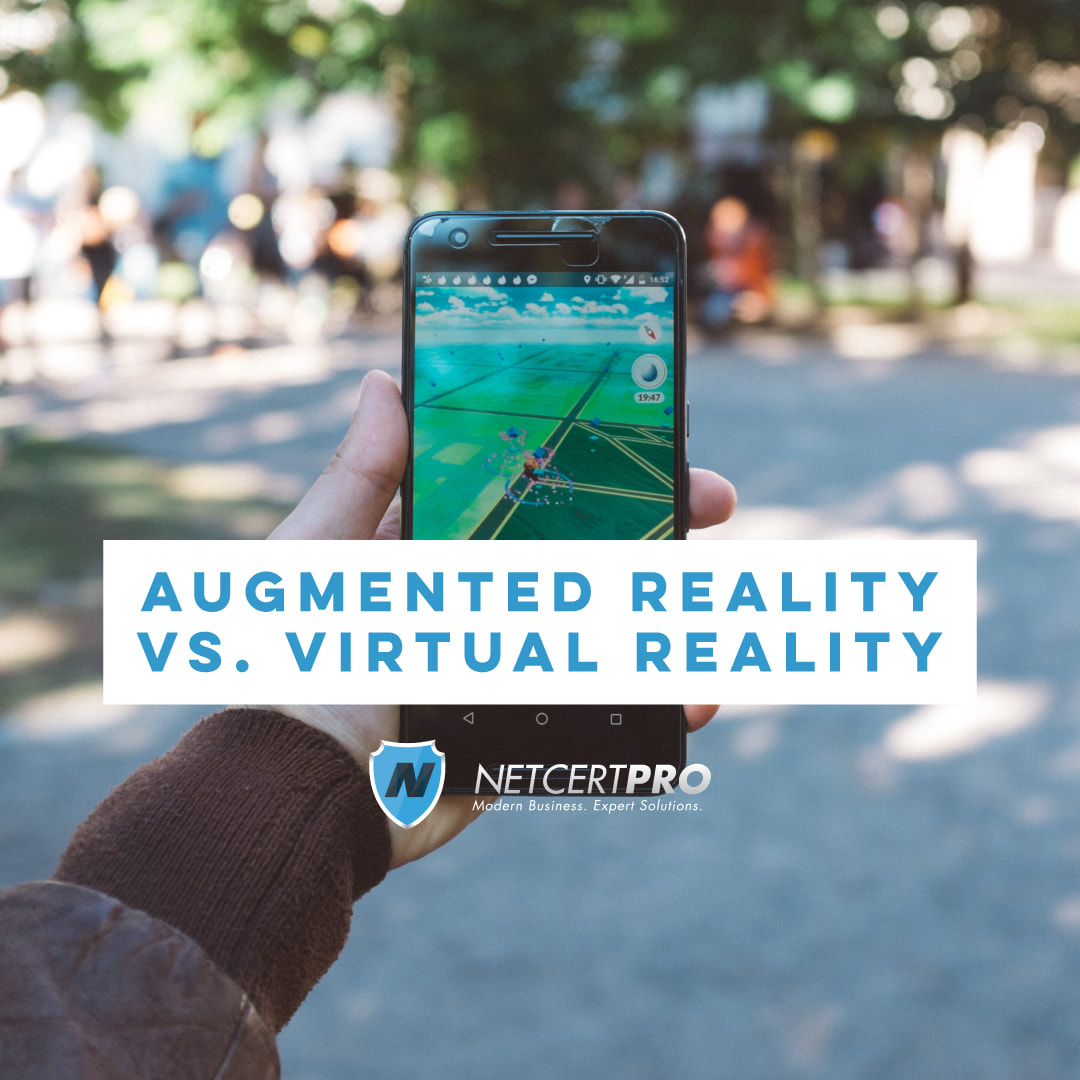|
Controlling some of the most popular games on our phones, computers, and game systems - along with some incredible technology to come - what is the difference between AR and VR and what should we be expecting of them in the years to come?
Technology has become something that many of us can't live without. It grows and changes almost daily and it affects the way we work, play, communicate, spend our time, and our money. Sometimes it's hard to keep up with the latest trending gadget and the best way to spend your time and money on this new technology. But one of the biggest trends is the two types of artificial reality that is starting to creep into our daily lives, Augmented Reality and Virtual Reality. What's the difference? Is one better than the other? Which one will be more beneficial in our lives and which one has the biggest future ahead of itself? Hopefully, this blog will shine a light on all of those questions! Augmented Reality You might not even know it - but if you have one of the latest smartphones or tablets, you are carrying around Augmented Reality with you every day. Augmented Reality, or AR, is an interactive experience of a real-world environment where objects that resides in the real world are enhanced by computer-generated information. Translation; it is a technology that superimposes computer-generated images on a user's view of the real world. It expands the world around you all by looking at the screen in your hand. Have you ever played Pokemon Go (Niantic 2016)? That is one of the most popular AR examples. When you open up the app, you are seeing the world around you with another layer added on top of it when you look at your screen. AR is also found in direction apps like Google Maps, apps that help you find your car in a crowded parking lot, shopping apps that let you try on clothes and accessories from the comfort of your home, and apps that let you decorate your home before spending a dime. What about that ever famous app called Snapchat? Those cute puppy filters? You guessed it, that is a prime example of Augmented Reality! The very first appearance of any kind of artificial reality was in 1968. It was developed by Ivan Sutherland and Bob Sproull who created the first ever head-mounted display that was called "The Sword of Damocles". It was a simple device that displayed primitive computer graphics into the world around them. The true birth of AR was in the 1990s where it was first used in TV and in the Military. Once it took its first step the technology exploded. Believe it or not before it became incredibly popular in game use, it appeared in many other forms. AR Uses that AREN'T Games.
AR PROS:
Virtual Reality Now let's talk a little bit about Virtual Reality. Virtual reality, or VR, replaces your vision competently. It is a completely artificial, computer-generated simulation of a real life experience. This type of reality typically requires a VR headset such as a HTC View, Oculus Rift, or a PlayStation VR set for the user to be fully immersed. Sometimes you hold a controller to interact in this world around you - other times you're wearing gloves with sensors inside of them. Once you put on the gear, your field of vision is replaced and you are totally immersed in the world around you. Never had the opportunity to see a famous concert that happened before you were born? Want to experience a roller coaster from the comfort of your living room? Want to be inside of a video game and really experience that life? That is the beauty of Virtual Reality. You can play games and experience different worlds around you safer, cheaper, and whenever you want to. But the technology is slow - and its growth and usage has been much slower compared to its AR counterpart. It is also harder to access and share in the business world. Say you are at a work conference and someone hands you a tablet or phone - you can see their products right in front of you within seconds. If VR is used in that capacity, it takes time to clean the headset and restart the application or program you want to experience. It has very limited use right now in the world outside of gaming - and the future of it being used commercially is very slow. Best Non "Gaming" VR Uses (Current and Future)
So, which reality seems better to you thus far? Just like AR - VR has it's own set of pros and cons. VR Pros:
With this knowledge - what do you think is best? It all comes down to opinion. They are both incredible forms of technology that need to be respected - and have an exciting future ahead of them. But it looks like AR might beat VR in that race. AR is already used daily from the palm of your hands in your smartphone to protecting our country. It's affordable, easy to use and understand, and can keep you involved and learning with the world around you. But VR can take you to new worlds and help you experience things that you may never have the opportunity to in safe and affordable ways. VR technology could surprise us all and become more affordable and more business savvy when we least expect it - but for now, it is a gamer's paradise. Now that you know a little bit more about AR and VR what is your next venture into this world of computer-generated reality going to be?
0 Comments
|
AuthorJeremy Sonntag & Archives
November 2019
Categories
All
|
|



 RSS Feed
RSS Feed
